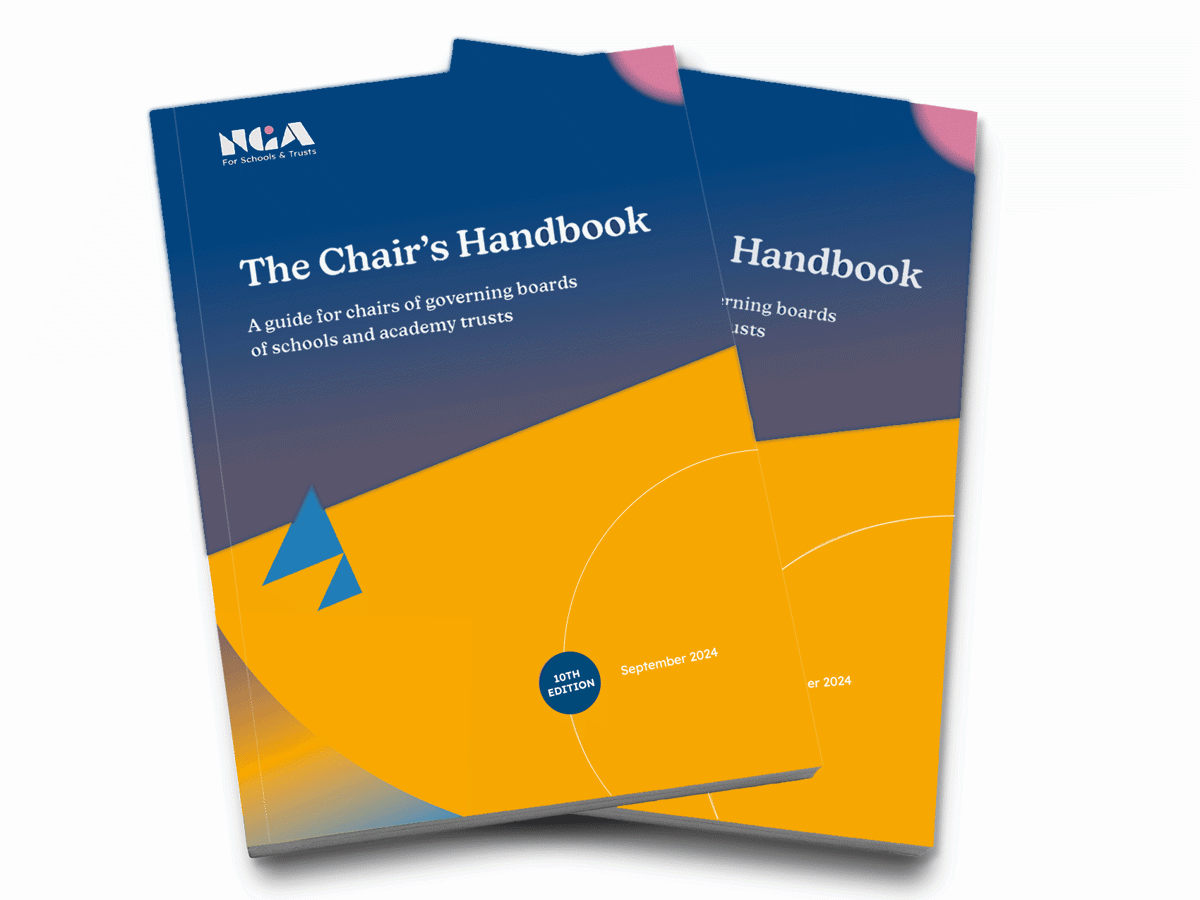What is 'chair's action'?
Chair’s action is the procedure by which the chair of the board can take unilateral decisions, bypassing usual processes, in specific circumstances of urgency.
- It is a process which governance professionals are often required to advise on, and is particularly likely to arise at sensitive times for the board and school.
- As a legal concept, chair’s action only exists in the regulations governing maintained schools. No equivalent can be found in the regulations or model articles which govern academy trusts.
- Nonetheless, trusts retain the option of setting out a similar procedure in their scheme of delegation, and many have chosen to do so.
- It is sensible for trusts to consider whether their governance arrangements include precautions for dealing with emergencies where urgent decision-making might be needed.
When can it be used?
To understand the extent, and limit, of the powers afforded by chair’s action, it is necessary to consult the School Governance (Roles, Procedures and Allowances) (England) Regulations 2013. The grounds for chair’s action are set out in regulation eight.
The regulations define the time at which chair’s action can be used as being when the chair believes a “delay… would be likely to be seriously detrimental to the interests of the school; any pupil at the school, or their parent; or a member of staff".
The challenge here is to interpret what is meant by “seriously detrimental.” Unfortunately, the regulations and accompanying guidance do not provide further clarity, leaving this question at the discretion of those involved and so aware of the context. The key point to draw out is the emphasis on “seriously detrimental”, meaning that the bar for justifying chair’s action is higher than simply any negative consequence of inaction.
The other key term in the regulations is the emphasis on “delay”, and here the regulations do provide useful clarification. The next paragraph defines delay as meaning “the earliest date on which it would be reasonably practicable for a meeting of the governing body… [or relevant committee] to be held.” The regulations allow meetings to be held with less than one week's notice where “there are matters demanding urgent consideration”, and attendance only needs to reach quorum for business to be valid. This means that, in practice, the “delay” which would have to be “likely to be seriously detrimental” would only be a handful days, potentially as short as 24 or 48 hours. Again, this acts as quite a high bar for justifying chair’s action, narrowing the circumstances where it would be appropriate.
NGA's Gold Advice service receives queries chairs and clerks seeking to justify chair’s action by the fact that another meeting is not scheduled for a number of weeks. The key point from the usage of “delay” in the context of chair’s action is that such an argument is insufficient. Calling a meeting at short notice will usually be possible.
When chair's action cannot be used
The regulations also set out the governing board functions which cannot be carried out via chair’s action. This includes:
- discontinuing the school
- approving the budget
- suspending governors
- agreeing policies regarding the management of staff
The Admissions Code also prevents decision on admissions from being made by one individual in an admissions authority. This means that, where the governing board is the admissions authority, the chair cannot use chair’s action to make admissions decisions.
In cases where the chair does decide to act, it is important that any actions are limited to those necessary to avoid serious detriment.
Reporting to the board
The chair should report back any use of chair’s action to the rest of the board at the next meeting. In cases where a meeting is not for several weeks, it would be sensible to update governing board members via email in order to maximise transparency.
The rest of the board retain the powers of suspension and removal of governors/trustees if they feel the chair is using their powers inappropriately.
Gold Advice Service
Need further advice?The complexities of governing in the real world can sometimes mean it is unclear whether chair’s action would be suitable in a given circumstance.
NGA Gold members can access our advice service via phone or online request and receive bespoke advice.


Michael Barton
Head of Advocacy and External Affairs
Michael specialises in trust governance, co-ordinating NGA's work with multi-academy trusts and producing tailored resources. He also leads NGA's work in the West Midlands, working closely with the region's trusts and local authorities.



































